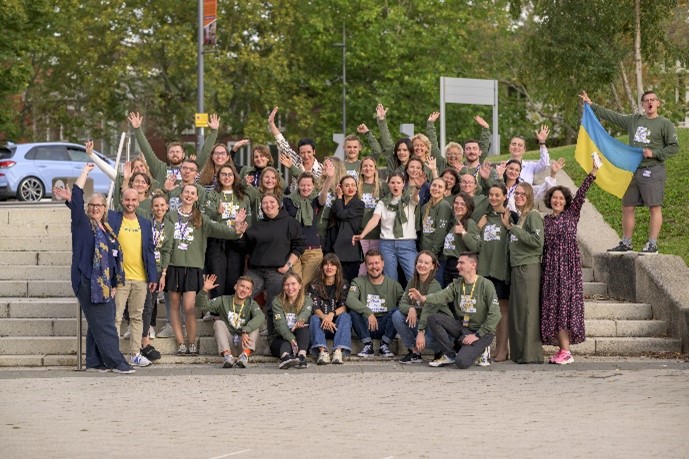Leadership for Educational Transformation Programme (Ukraine)

The University of Warwick’s Leadership for Educational Transformation has been created in collaboration with the Ukrainian Leadership AcademyLink opens in a new window, Ukraine Ministry of Education and ScienceLink opens in a new window, and Ministry of Digital Transformation in support of the Education Reform VisionLink opens in a new window (Viziya). The programme will introduce change concepts and methods as well as educational concepts and approaches, aimed to support the planned Reform and the long-term regeneration of education in Ukraine (secondary and tertiary education). The programme supports rethinking of education at three levels: micro (teaching and learning in the classroom), meso (organisation, management and leadership at institutional or school level) and macro (steering, policy, assurance, legal and strategic development at national level). Participants of the programme will have the possibility to continue their learning at Masters level through a further programme at the University of Warwick in collaboration with EU and Ukrainian partners.
Three residential modules, with online delivered seminars afterwards, are available. Participants are also able to take Masters level assessments which lead to the achievement of a Postgraduate Award. The Postgraduate Awards can be used as part of a full Masters in Professional Education, delivered by the Centre for Teacher Education.
Key facts
Over 250 applicants from across the education sector have expressed interest in the programme and 40 were selected to join the first cohort.
To date 30+ members of Warwick staff 10+ external experts on post conflict reconstruction, and several local school leaders have contributed to the programme.
The knowledge exchange partnership includes the Ukrainian Leadership Academy, Ukraine's Ministry of Education and Science and Ministry of Digital Transformation.
This programme was founded by Dr Bo Kelestyn and is hosted by the School of Education, Learning and Communication Sciences (SELCS).
Programme
Module one was provided as a Summer School (8-15 September 2023) focusing on macro level insight into how Education is affected at a cross national level by war and crisis.
Module two is provided as a residential (29 January - 2 February 2024) at Warwick, focusing on meso level understanding of the leadership challenges of providing educational change and resilience during war and crisis.
Module three is also a residential (17-26 May 2024) and focuses on micro level challenges of the delivery of teaching and supporting of learning during and post war.
Key staff contacts: Dr Bo Kelestyn and Prof Gwen van der Velden
